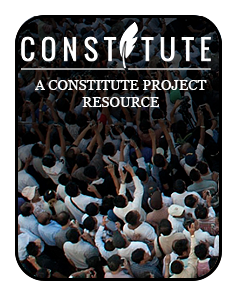Founded in the 12th century, the Principality of Muscovy was able to emerge from over 200 years of Mongol domination (13th-15th centuries) and to gradually conquer and absorb surrounding principalities. In the early 17th century, a new ROMANOV Dynasty continued this policy of expansion across Siberia to the Pacific. Under PETER I (ruled 1682-1725), hegemony was extended to the Baltic Sea and the country was renamed the Russian Empire. During the 19th century, more territorial acquisitions were made in Europe and Asia. Defeat in the Russo-Japanese War of 1904-05 contributed to the Revolution of 1905, which resulted in the formation of a parliament and other reforms. Repeated devastating defeats of the Russian army in World War I led to widespread rioting in the major cities of the Russian Empire and to the overthrow in 1917 of the imperial household. The communists under Vladimir LENIN seized power soon after and formed the USSR. The brutal rule of Iosif STALIN (1928-53) strengthened communist rule and Russian dominance of the Soviet Union at a cost of tens of millions of lives. After defeating Germany in World War II as part of an alliance with the US (1939-1945), the USSR expanded its territory and influence in Eastern Europe and emerged as a global power. The USSR was the principal adversary of the US during the Cold War (1947-1991). The Soviet economy and society stagnated in the decades following Stalin’s rule, until General Secretary Mikhail GORBACHEV (1985-91) introduced glasnost (openness) and perestroika (restructuring) in an attempt to modernize communism, but his initiatives inadvertently released forces that by December 1991 splintered the USSR into Russia and 14 other independent republics.
Following economic and political turmoil during President Boris YELTSIN's term (1991-99), Russia shifted toward a centralized authoritarian state under the leadership of President Vladimir PUTIN (2000-2008, 2012-present) in which the regime seeks to legitimize its rule through managed elections, populist appeals, a foreign policy focused on enhancing the country's geopolitical influence, and commodity-based economic growth. Russia faces a largely subdued rebel movement in Chechnya and some other surrounding regions, although violence still occurs throughout the North Caucasus.
Russia is a semi-presidential federation.
Members:
Resources
Displaying 96 - 100 of 1046Constitution of Russian Federation 1993 (rev. 2014)
After a protracted drafting process, the constitution was approved by a Constitutional Conference before a revised form was ratified by 58.4% of voters in a plebiscite.
Ministerial Decree No. 177 of 1992 regarding the validation of the form of Certificate of land ownership, Contract of tenancy for agricultural land, Contract of temporal leasehold of agricultural land.
This Decree establishes that the forms of Certificate of landownership can be used provisionally, till the issues of the state legal form, as a document for lifelong ownership valid for inheritance and limitless (permanent) land lease. This Decree validates the forms of Certificate of landownership, Contract of tenancy for agricultural land, Contract of temporal leasehold of agricultural land. The forms of these documents are supplied in Annexes.
Decree of the Supreme Soviet of the RSFSR regarding carrying into effect of the "Land Code" of the RSFSR (No.1103/1 - I of 1991).
This Decree puts into effect the "Land Code" of the RSFSR. In the meantime the legislation of the RSFSR is applicable within the limits that it doesn't contradict the "Land Code" of the RSFSR. The "Land Code" is applicable to offences committed after its validation except for the offences liable to the articles 47-51 that are applicable after the validation of the Law of the RSFSR regarding land charges.
Regional Law No. 119-oz “On establishment of the price of land plots located within the boundaries of regional urban areas destined for agricultural production, without edifices or constructions thereon”.
This Regional Law establishes that price of purchase of land plots located within the boundaries of regional urban areas destined for agricultural production, without edifices or constructions thereon previously allotted to agricultural organization or to peasant farm on condition of permanent (open-ended) tenancy or on condition of life-long hereditary possession shall be set at fifteen percent of cadastre value of the aforesaid plots of land.
Regional Law No. 3-Z “On Civic Chamber”.
This Regional Law establishes that Civic Chamber shall be permanent body with a view of promoting civil society institutions, ensuring public control and cooperation of citizens with state bodies and local government. Its scope shall be protection of rights and duties of citizens, social associations and other non-government bodies (NGOs).



